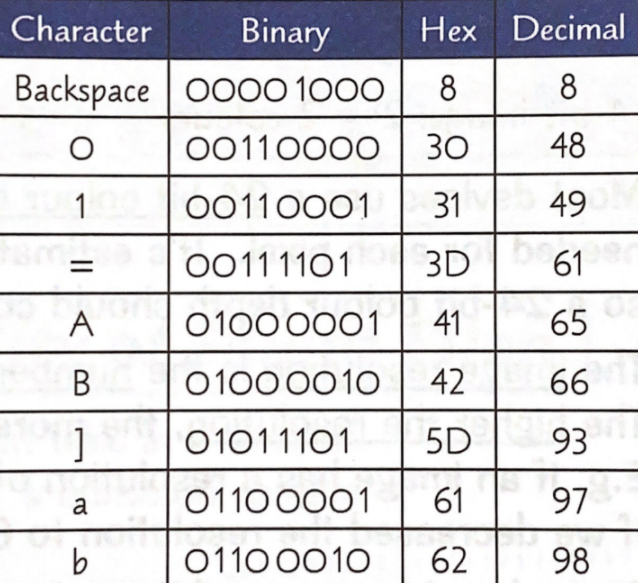ASCII
Key Characteristics:
- ASCII is the most commonly used character set in the English-speaking world.
- Each ASCII character is given a 7-bit binary code and it can represnt a total of 128 different characters.
- Some of these characters include both the upper and lower case letters in the English alphabet, numbers, symbols and commands.
- An extra bit is added to the start of the binary code for each ASCII character. This is so that each character nicely fits into 1 byte.

Extended ASCII:
- Extended ASCII uses 8-bit binary codes to represnt 256 characters.
- The first 128 characters are the exact same as the standard ASCII.
- The remaining 128 characters represent characters in some other languages like French and German.
Unicode
Key Characteristics:
- Unicode comes in various forms and tries to cover every possible character, letter and symbol that may be written.
- Unlike ASCII, Unicode uses multiple bytes per character.
- The best thing about Unicode is that it covers all commonly used languages even those that use completely different characters like Chinese, Greek, Arabic and Russian.
- The first 128 characters in Unicode are the exact same as those in ASCII.